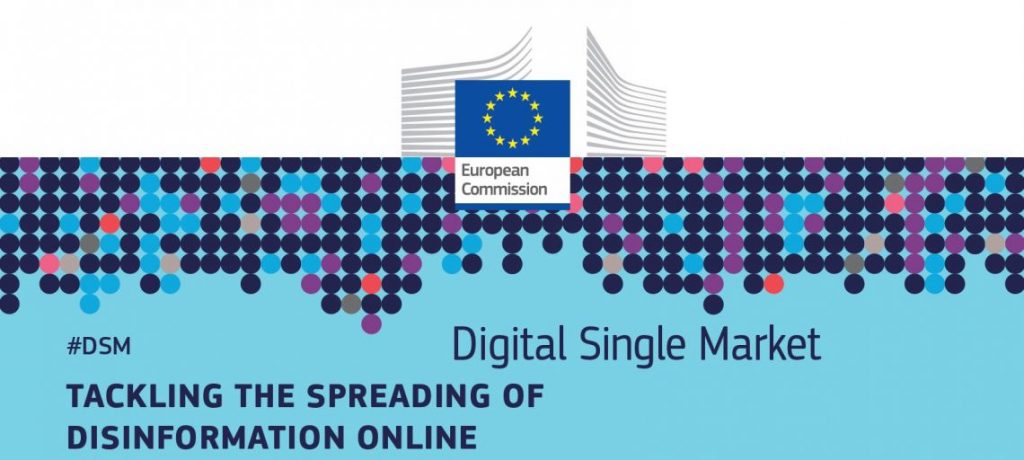Tackling Online Disinformation
Disinformation
“Disinformation” can be understood as false information deliberately created and spread to influence public opinion or obscure the truth. Disinformation does not include journalistic errors, satire, or parody.
Disinformation – or fake news – consists of verifiably false or misleading information that is created, presented and disseminated for economic gain or to intentionally deceive the public, and may cause public harm.
Fake News
“Fake news” is a simplification of the complex problem of disinformation.
Fake news and online disinformation are not per se illegal and thus are not covered by existing legislation or self-regulation although some Members States are looking into legislative actions.
The EU Commission proposes an EU-wide Code of Practice on Disinformation, support for an independent network of fact-checkers, and tools to stimulate quality journalism.
Social media and online platforms play an important role in speeding up the spread of such news and they enable a global reach without much effort from the author. Representatives of online platforms, leading social networks, advertisers and advertising industry agreed on a self-regulatory Code of Practice to address the spread of online disinformation and fake news.
- Code of Practice on Disinformation [September 2018]
Media Literacy
“Media literacy” refers to all the technical, cognitive, social, civic and creative capacities that allow us to access and have a critical understanding of and interact with media. It covers different media: broadcasting, radio, press, through various channels: traditional, internet, social media and addresses the needs of all ages.
Internet Advertising
Consumers often do not know how or why they are targeted by advertising on social media. For many, the commercial character of paid Internet advertising, which resembles editorial content, is not clear. This is the conclusion reached by the EU Commission in a study.
Online platforms and advertising industry have presented roadmaps [October 2018] with concrete steps to fight disinformation to implement the Code of Practice on disinformation. The Commission will support the implementation of these roadmaps ahead of the EU elections and will monitor their effectiveness on a regular basis.
The “EU vs Disinformation” campaign is part of a campaign to better forecast, address and respond to pro-Kremlin disinformation.
